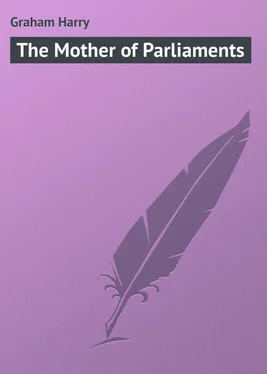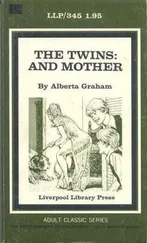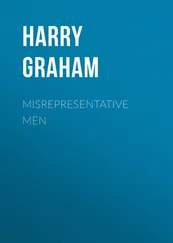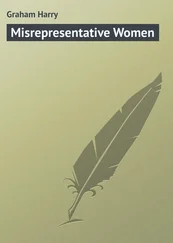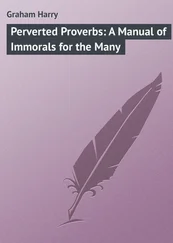Harry Graham - The Mother of Parliaments
Здесь есть возможность читать онлайн «Harry Graham - The Mother of Parliaments» — ознакомительный отрывок электронной книги совершенно бесплатно, а после прочтения отрывка купить полную версию. В некоторых случаях можно слушать аудио, скачать через торрент в формате fb2 и присутствует краткое содержание. Жанр: foreign_prose, на английском языке. Описание произведения, (предисловие) а так же отзывы посетителей доступны на портале библиотеки ЛибКат.
- Название:The Mother of Parliaments
- Автор:
- Жанр:
- Год:неизвестен
- ISBN:нет данных
- Рейтинг книги:5 / 5. Голосов: 1
-
Избранное:Добавить в избранное
- Отзывы:
-
Ваша оценка:
- 100
- 1
- 2
- 3
- 4
- 5
The Mother of Parliaments: краткое содержание, описание и аннотация
Предлагаем к чтению аннотацию, описание, краткое содержание или предисловие (зависит от того, что написал сам автор книги «The Mother of Parliaments»). Если вы не нашли необходимую информацию о книге — напишите в комментариях, мы постараемся отыскать её.
The Mother of Parliaments — читать онлайн ознакомительный отрывок
Ниже представлен текст книги, разбитый по страницам. Система сохранения места последней прочитанной страницы, позволяет с удобством читать онлайн бесплатно книгу «The Mother of Parliaments», без необходимости каждый раз заново искать на чём Вы остановились. Поставьте закладку, и сможете в любой момент перейти на страницу, на которой закончили чтение.
Интервал:
Закладка:
Seats in Parliament were regularly bought and sold, the price varying from £1500 to as much as £7000. Flood, the Irish politician, purchased a seat in the English House of Commons for £4000. The notoriously corrupt borough of Gatton was publicly advertised for sale in 1792, with the power of nominating two representatives for ever, described by the auctioneer as "an elegant contingency." 20 20 Bell's "Life of Canning," p. 347.
This same seat was sold in 1831 by Sir Mark Wood for the huge sum of £60,000, and the purchaser's feelings may well be imagined when, under the Reform Act of the following year, the borough was disfranchised and rendered worthless. 21 21 Mark Boyd's "Social Gleanings," p. 246.
Parliament was for long in the hands of a few rich persons. Wealthy individuals would buy property in small boroughs in order to increase their political influence, and cared little for the fitness of the representatives whom they nominated. The story is told of a peer being asked who should be returned for one of his boroughs, and casually mentioning a waiter at White's Club whom he did not even know by name. The waiter was duly elected, and, for aught we know, may have made a most worthy and excellent member of Parliament. 22 22 Russell's "Recollections," p. 35.
In 1815 the House of Commons contained 471 members who were the creatures of 144 peers and 123 Commoners. Sixteen representatives were Government nominees; and only 171 members were actually elected by the popular vote. 23 23 Oldfield's "Representative History," vol. vi., App.
Five years later nearly half the House were returned by peers. 24 24 "The Black Book," vol. i. p. 430.
The passing of the Septennial Act in 1716, in place of the Triennial Act of 1694, though meeting with much hostile criticism, 25 25 "By the same violence that one Parliament, chosen but for Three Years , could prolong their own sitting for Seven , any other may presume to render themselves perpetual." Ralph's "Uses and Abuses of Parliament," vol. ii. p. 716.
had helped to further that growing independence of both Lords and Crown which was the chief aim of the Commons. Before the Triennial Act Parliament could only be dissolved by the Crown. Under the Triennial Act it suffered a natural death three years after the day on which it was summoned. The Septennial Act lengthened that existence by a further period of four years. Members were no longer kept in a state of perpetual anticipation of an imminent General Election; they were no more harassed by the fear of losing their seats at any moment. With security came strength, but purity was a long time in following. The Septennial Act, says Lecky, gave "a new stability to English policy, a new strength to the dynasty, and a new authority to the House of Commons." But it certainly did not tend to decrease the corruption which was then rampant both in Parliament and in the country.
The whole body politic was, indeed, utterly rotten, and it was only considered possible to maintain the ministerial influence by a system of disciplined Treasury corruption. The secret service money with which votes were bought was in the control of the Prime Minister, and Walpole is said to have stated that he did not care a rap who made Members of Parliament so long as he was allowed to deal with them after they were made. The produce of the taxes descended in fertilizing showers upon the proprietors, the agents and the members for boroughs. For them, as Lord John Russell said, the General Election was a state lottery in which there was nothing but prizes. "The elector of a borough, or a person he recommends, obtains a situation in the Customs; the member of Parliament obtains a place in the Mediterranean for a near relation; the proprietor of the borough obtains a peerage in perspective; and the larger proprietor, followed by his attendant members, shines in the summer of royal favour, with a garter, a regiment, an earldom, or a marquisate." 26 26 "Essays and Sketches of Life and Character," p. 148.
So ingrained had this idea become in the public mind that the Duke of Wellington is supposed to have asked ingenuously, on the abolition of the rotten boroughs, "How will the King's Government be carried on?"
Several ineffectual efforts had from time to time been made to slay the monster of corruption. From the days of Cromwell the question of Parliamentary reform had been anxiously urged by many statesmen, notably Lord Shaftesbury and Pitt, of whom the latter introduced reformative measures in 1781, 1782 and 1785. But though Pitt, the first Prime Minister who did not retain any of the public money for distribution among his friends and supporters, managed to reduce "places" worth over £200,000, after the American War, there still remained any number of inflated pensions and sinecures in the gift of the Government, 27 27 For example, one of £7000 for a retired Auditor of the Imprest, and another of £7300 granted to Lord Bute as some slight compensation for his loss of office. See Rose's "Influence of the Crown."
and it was not until Parliament came to be controlled entirely by public opinion that the change from corruption to purity took place. But notwithstanding many flaws in theory and blots in practice, the English Parliamentary Constitution prior to the Reform Bill was, as Mr. Gladstone called it, one of the wonders of the world. "Time was its parent, silence was its nurse… It did much evil and it left much good undone; but it either led or did not lag behind the national feeling and opinion." 28 28 "Gleanings of Past Years," vol. i. pp. 134-5.
With the Reform Act of 1832, Parliament advanced another stage in its career. The House of Commons definitely shook itself free from the active corruption which had so long impeded its movements.
The principle of Party Government, which now lies at the very root of our parliamentary system, had its origin during the second period of parliamentary history, and formed no part of the constitutional scheme of earlier days.
In Queen Elizabeth's time two definite and distinct parties arose, the one maintaining the privileges of the Crown, the other upholding the interests of the people. In Stuart days Cavaliers and Roundheads were followed by Court and Country Parties, and in the year 1679, when the Exclusion Bill was being bitterly debated, the distinctive names of "Whigs" and "Tories" first came into existence. "Whig" was originally a word applied to the lowland peasantry of the West of Scotland; thence it came to mean Covenanters, and so politicians who looked kindly upon Nonconformity. "Tory" was an expression popularly used with reference to the rebel Irish outlaws who harassed the Protestants; and thus implied leanings towards Catholicism. 29 29 O'Connell showed Pryme an Irish Act of Parliament for the suppression of "Rapparees, Tories, and other Robbers." Pryme's "Recollections," p. 231.
The growth of a respect for the people's rights forced politicians to separate into two sections, and the schism between the rival camps was still further emphasized by the Revolution of 1688. Regular opposing parties do not, however, seem to have existed in the Commons until the eighteenth century, and the party system was not finally established as a necessary element of constitutional government until the reign of William III. Kings had hitherto chosen their advisers irrespective of their political views. William III. was, however, induced by the Earl of Sunderland to form a Ministry from the party that held a majority in Parliament, and thus became to a certain extent controlled by that party.
There have always been, as Macaulay says, under some name or other, two sets of men, those who are before their age, and those who are behind it, those who are the wisest among their contemporaries, and those who glory in being no wiser than their great-grandfathers. But this definition of the two great political parties of England can no longer with justice be applied. The Tory of to-day is not at all the Tory of two hundred years ago: indeed, he rather resembles the Whig of Queen Anne's time. And though Disraeli continued to use the word "Tory," and was never ashamed of it, it has now gradually fallen into disuse, save as a term of reproach on the lips of political opponents. A change of nomenclature was adopted in 1832. The Tories became Conservatives, and for the benefit of wavering Whigs it was proposed that the latter should be known as Liberal-Conservatives, a name which, as Lord John Russell remarked, expressed in seven syllables what Whig expressed in one. 30 30 A German writer, Herr Bucher, wrote as follows, in 1855: – "It would be difficult to give any other definition of the two parties than that a Whig is a man who is descended from Lord John Russell's grandmother, a Tory, one who sits behind Disraeli." "Der Parliamentarismus wie er ist," p. 152.
The term "Radical" did not come into use until the days of the famous reformer, Francis Place (1771-1854); his political predecessors contenting themselves with the more modest name of Patriots. Called by whatever name is popular for the moment, either party may now claim to come within the scope of Burke's well-known definition as "a body of men united for promoting, by their endeavours, the national interest upon some particular principle in which they are all agreed."
Интервал:
Закладка:
Похожие книги на «The Mother of Parliaments»
Представляем Вашему вниманию похожие книги на «The Mother of Parliaments» списком для выбора. Мы отобрали схожую по названию и смыслу литературу в надежде предоставить читателям больше вариантов отыскать новые, интересные, ещё непрочитанные произведения.
Обсуждение, отзывы о книге «The Mother of Parliaments» и просто собственные мнения читателей. Оставьте ваши комментарии, напишите, что Вы думаете о произведении, его смысле или главных героях. Укажите что конкретно понравилось, а что нет, и почему Вы так считаете.
